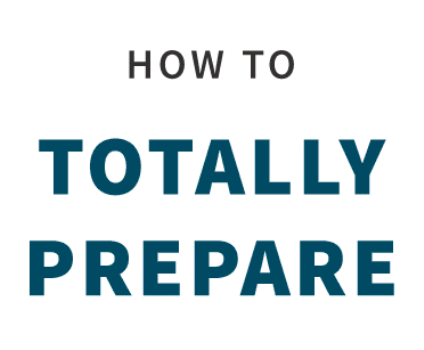Your company is your most valuable asset. You have spent years creating, building, and nurturing it. It is your life’s work.
And now may be the time when you are thinking about selling it. There are probably many reasons for this, but the time is right.
There is one thing for sure. Selling a company can be a long and complex process.
Here is some of what you will need to do to get your company ready to sell. Each business is unique and will require specialized actions particular to them. So what we are saying here is generally what you will need, the details will be different for each company.
First, do not do this alone.
Have a team. Surround yourself with trusted experts who have experience in getting companies ready to sell. They should have some Mergers & Acquisitions experience as this is ultimately where you want to go. But not only M&A, but also tax, valuation, business marketing/operations, and asset protection. This is a complex, multi-faceted process. All these functional areas play important roles.
The coordinator of the team should be an Exit Planner. The Exit Planner’s primary responsibility is to help you, the business owner, identify the best process and timeline for selling the business. And then do it.
Some businesses have intense family situations, which increases the complexity. Knowing all the possible options is therefore required to obtain the most optimal outcome.
This will take time to coordinate between your professional advisors. Your Exit Planner must be willing to take that time to ensure a good outcome taking into consideration all of the factors that apply to you.
Second, make your company pristine.
A great time to sell is when revenues are increasing and you are making the most money possible. Sales and profits should look like they will get even better in the future. Why is this the best for you? Because that is when you will get the most money as buyers will want to take part in the upside.
We’ve worked on many acquisitions for clients. If we see a business that is struggling in some way then we know that it can be purchased for less money. It can then be turned around with the new buyer pocketing all the gains for themselves. Buyers will not pay for future promises of better sales and profits when a business is under-performing. Do not let this happen to you.
Make sure your company is performing at its best. Clean up any problems in human resources, operations, sales & marketing, tax planning, asset protection, finance, and so on. Have good, clean financial statements containing nothing unusual such as excessive owner’s personal expenses.
Sometimes even just small adjustments can have a big impact on value.
Don’t skimp on good planning and preparation. Especially make sure there are no “land mines” lurking that will give the buyer an excuse to reduce the purchase price after the problem is discovered in what is called “due diligence.” Make your company pristine and beautiful.
Then walk away with the highest selling price.
Third, know your potential options and exit strategies
When selling a business, there is a very wide variety of options available. These must be understood so you and your exit planner will know what is best for you.
First, what type of buyer are looking for? The basic choices are to sell to a strategic buyer or a financial buyer.
A strategic buyer will buy a company with plans to run it themselves. Strategic buyers may be the most likely to pay the most for your business.
They are often your competitors, customers, or suppliers. They may be outside your industry or geographic market but want to diversify to grow. What may appeal to a strategic buyer is the “fit” between your operations and theirs.
One type of buyer is a person who was an executive in a large company or had previously owned a similar business. That person is looking for their next career opportunity. This type of person may be the most likely buyer of your business.
We would categorize family members, employees, and the like as being a type of strategic buyer.
A financial buyer includes those who will buy your business but do not expect to run it themselves. Instead, they want to buy it, fix things up, and sell it for a profit later. These can be private equity and venture capital firms, hedge funds, family offices, and wealthy individuals.
Another important consideration is are you willing to stay with the company for a while after the sale? This will help in the transition and give the buyer some comfort that they will get what they bargained for. Sometimes, a business owner will need to help move customers over to the new owners. If you are willing to stay with the business for a time and help with the transition, it may be easier to sell.
Also, is this the right time to sell your business? The reasons why business owners want to sell their companies are so different, it is hard to generalize. You should always take a moment, and think about your entire situation. Not just what prompted the thought of selling in the first place.
In the end, the best time to sell the business is when it is best for you. But always know your options.
Fourth, determine the market value for the company
There are many different ways to value a company and the result can be affected by the purpose of the valuation. Some of these methods can be somewhat theoretical. But when selling a business, your company will be valued by a real buyer with their own motives/needs, in the middle of a dynamic market under real-life conditions and with outcomes no one can really predict with 100% accuracy. The buyer is taking a risk and needs to have a comfort that the risk is kept as low as possible.
Business valuation is both art and science. The science comes from having years of training and technical skills to be able to do the calculations. The art comes from having decades of experience to know what is a realistic value given the market conditions at the time of the sale. There are many that can do the calculations. There are few who understand the art – and have the experience – to give you the best result.
Fifth, know what is in the process.
Understanding the selling process will increase the likelihood of success.
Some of the tasks to be accomplished include creating the marketing materials (the “Pitch Book”), identifying potential buyers, making initial contact, the buyers’ investigation of your company (called ‘Due Diligence”), and handling the negotiations.
In the negotiations, price isn’t everything. There may be other factors that will make it more likely (or not) to complete the sale. For example, structuring the transaction is very important. This can mean the inclusion of seller financing, asset versus stock sale, earn-out terms, environmental issues (if any), liabilities assumed by the buyer, employment contracts, current assets retained by the seller, etc. Other items can include options packages, employee retention, tax planning, and so on.
Remember, don’t do this alone!
The tasks listed above are only some of the things you will have to deal with. Each requires specialized knowledge and needs to be coordinated.
The business owner’s job is to focus on building the best company possible. You need to remove any reasons that a buyer may discount its value or even consider not making an offer in the first place. Use your advisors, coordinated by the exit planner to achieve that goal.
Preparing ahead of time will help minimize any problems that the above areas may cause at the end of the process. Don’t be disappointed – prepare and the process will go better.



